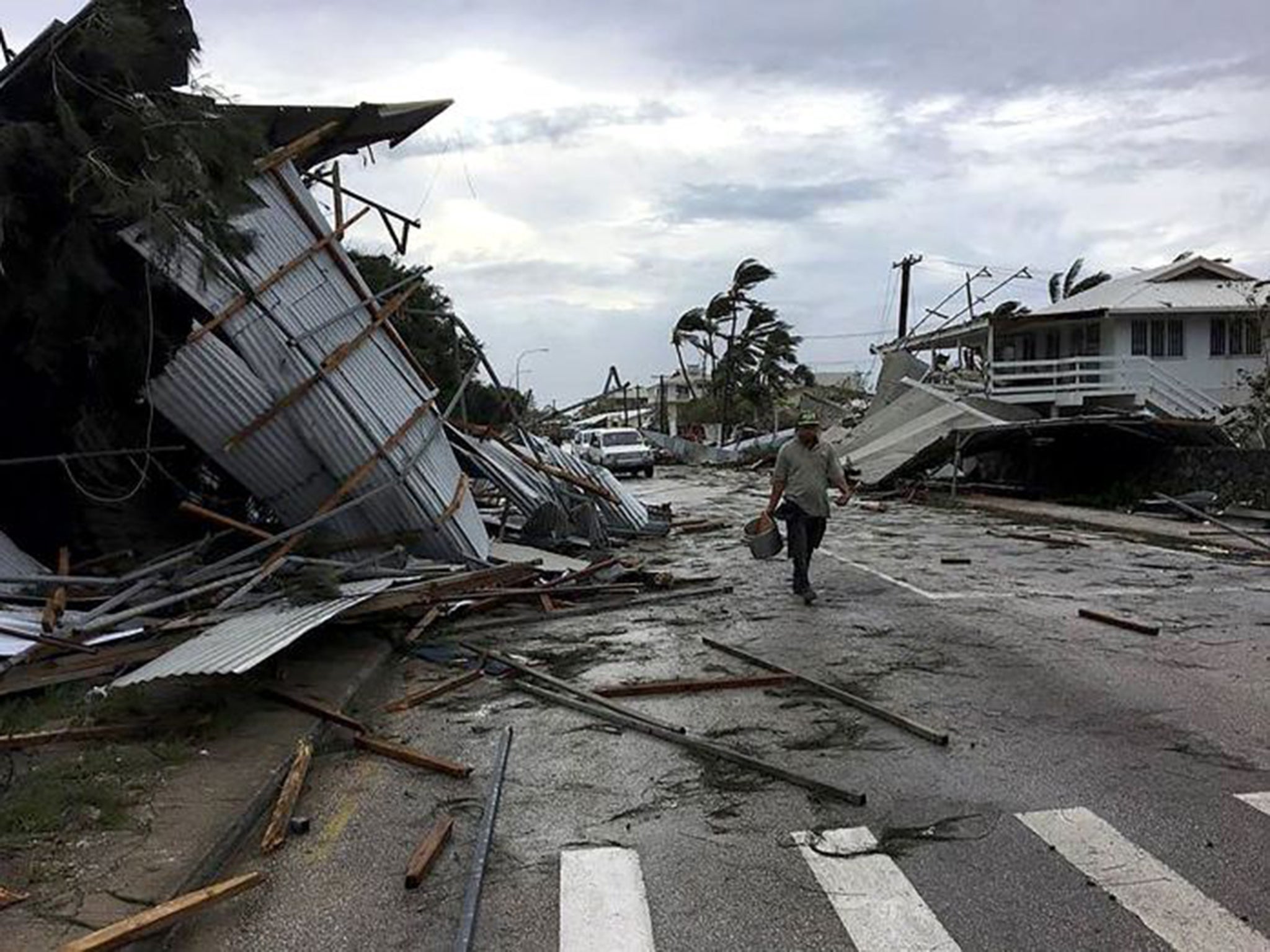‘No surprise but a stark warning’: How scientists around world reacted to IPCC’s landmark climate report
Climate Correspondent Daisy Dunne explores how research community responded to biggest global heating assessment in years


The role that humans have played in driving the climate crisis is “unequivocal”. That is one of the key takeaways of a landmark report from the UN’s Intergovernmental Panel on Climate Change (IPCC) released on Monday.
Authored by 234 scientists in 66 countries, the first chapter of the IPCC’s sixth assessment report also said it was “more likely than not” that the world will hit 1.5C of global warming sometime between 2021 and 2040. Urgent and immediate action is needed to keep aspirations to limit global warming to 1.5C above pre-industrial levels within reach.
The milestone report comes shortly before Cop26, a global climate summit taking place in Glasgow in November. The findings will provide the backdrop for discussions on how best to tackle the climate crisis at the key meeting of global leaders.
Beyond this, the landmark assessment will also inform the work of scientists studying changes to Earth’s climate in the years ahead.
Below, The Independent has gathered the thoughts of 12 scientists on what they view to be the main messages contained within the report’s 3,000 pages.
Prof Katharine Hayhoe, chief scientist at The Nature Conservancy
These latest IPCC conclusions couldn’t speak any louder. It’s clear we’re all in the same boat – facing a challenge that will affect every one of us within our lifetimes, not to mention future generations and most other life on Earth. The need to act collectively and decisively has never been more urgent.
Scientists have predicted the likelihood of accelerating climate change for more than a century now – yet too often their warnings have been disregarded. My hope is that the rigour, transparency, and unprecedented urgency of this latest IPCC report will make it simply impossible to ignore.
Prof Simon Lewis, global change scientist, University College London and the University of Leeds
The very careful scientific language of the new report contains a stark message: the level of devastation we face is in our collective hands. If the world slashes CO2 emissions now and reduces them to net zero by 2050 we would keep the global temperature rise close to 1.5C and avoid the worst impacts.
Cutting emissions to net zero means keeping fossil fuels in the ground, ending deforestation, and rapidly moving to using renewable energy to power the global economy.
The new report significantly raises the pressure on world leaders to agree detailed and achievable plans to immediately cut emissions when they meet for the UN climate summit in Glasgow in November.
Dr Ella Gilbert, post-doctoral research assistant at the University of Reading
Climate change is happening before our very eyes. Recent events across the world only emphasise that – from devastating wildfires in California, Greece and Turkey, to floods in England, Belgium and Germany, to heatwaves in Siberia and Canada. This report reminds us of what we already know – that these kinds of events will only become more frequent and hard-hitting with ongoing warming.
The science should come as no surprise – but it serves as a stark warning. As the report says – “every tonne of CO2 emissions adds to global warming” – so what we do now has never been more important.
Prof Petteri Taalas, secretary-general of the UN’s World Meteorological Organisation
The harsh reality of climate change is playing out in real time before our very eyes.
It is a foretaste of what faces future generations. Some of the negative changes are already locked into the climate system but others still can be addressed if we make strong, rapid and sustained reductions in emissions now.

Dr Shilpi Srivastava, research fellow at the Institute of Development Studies at the University of Sussex
The findings should serve as a reminder that we need to urgently prioritise support for those who are most disadvantaged and already experiencing the worst impacts of climate change.
We need transformative climate justice for people across the globe who’ve been marginalised and excluded from decision-making on impacts and interventions. We need to talk about loss and damage for vulnerable communities and must hold governments accountable to deliver programmes that bring meaningful and positive change in the lives of those most affected by climate change.
Leaders meeting at Cop26 need to listen to science and take decisive actions to keep fossil fuels in the ground. In parallel, they must ensure that policies for adaptation and mitigation, including achieving net zero emissions are just and inclusive.
Prof Saleemul Huq, director of the International Centre for Climate Change and Development in Bangladesh
The just published seminal sixth assessment report of the IPCC should be termed the “Loss and Damage” report because it will usher in the new era of Loss and Damage from human induced climate change! The worst impacts are still avoidable by urgent actions by all countries before Cop26. (On Twitter.)
Dr Sarah Perkins-Kirkpatrick, climate extremes fellow at the University of New South Wales, Sydney
The latest IPCC report underlines that climate change is happening now, and will continue to get worse if drastic cuts to emissions are not undertaken.
The world has warmed by almost 1.1C and Australia by 1.4C. With this change, we have seen increases in the frequency and severity of heatwaves, more severe bushfires, more intense rainfall events, and more droughts over some regions. Compound extreme events, which occur at the same time, have also increased.
Many of these changes scale with global warming – the more global warming we experience, the worse these extremes will be.
Prof Dave Reay, director of Edinburgh Climate Change Institute, University of Edinburgh
This report should send a shiver down the spine of everyone who reads it. In the unblinking delivery style of the IPCC it sets out where we are now and where we are headed and climate change: in a hole, and still digging.
Extreme temperatures, and the loading of the heat wave dice our emissions are causing, get deserved attention. A searing “one-in-50 year event” of the past for instance, is already more than four times more likely and, under a high emissions future, could become around 40 times more likely, and five degrees hotter to boot.
What really stands out are the new assessments of tipping points in our global climate system, and the climate change lock-ins we are forging for scores of generations to come. For the tipping points – things like massive die-back of the forests and belching of carbon from thawing soils – it’s clear that every extra tonne of CO2 emitted today is pushing us into a minefield of feedback effects tomorrow.
Dr Michael E Mann, distinguished professor of atmospheric science at Pennsylvania State University
Ideologically-motivated science denial is, as we’ve seen, deadly when it comes to Covid 19.
And, as we’ve seen, when it comes to the climate crisis. (On Twitter.)
Prof Martin Siegert, co-director of the Grantham Institute at Imperial College London
On sea level rise, the [report] is a much better reflection of the state of knowledge than previous [IPCC assessment reports] that have tended to underestimate, or even ignore, the highest possible outcomes.
There are great uncertainties in ice-sheet processes (the dominant contributor in future), and this lack of knowledge and the consequences for sea level projections – coupled with an appreciation of how ice sheets can change rapidly from palaeo studies – is reflected explicitly and properly.
Dr Andrew King, a lecturer in climate science at the University of Melbourne
The sixth IPCC assessment report provides a comprehensive review of the state of Earth’s climate and the possible futures that lie ahead. There is increased confidence around many key statements, but the central message remains the same as before: Our use of fossil fuels has caused the climate to warm and if we don’t drastically reduce our greenhouse gas emissions we risk a much warmer world and worse climate change impacts.
This report includes an increased focus on climate extremes as the science around climate change and high-impact events has grown. For example, the burgeoning area of event attribution, in which the role of human-caused climate change on extreme events may be examined, is used to show that some recent hot extremes would have been extremely unlikely to occur without human influences on the climate.
Prof Mark Maslin, earth system scientist at University College London
This report is a scientific and political wake-up call for all governments of the world to take climate change seriously. It acts as a reminder of the urgency of the climate crisis and warns.
Governments must now work in solidarity, taking heed of this report and increasing their ambitions to ensure we can avoid the worst effects of climate change, adapt to its impacts, and protect our most vulnerable populations. The IPCC report gives governments the essential tools to rapidly adapt to climate change and shows emission pathways needed to limit climate change.
Join our commenting forum
Join thought-provoking conversations, follow other Independent readers and see their replies
Comments
Bookmark popover
Removed from bookmarks